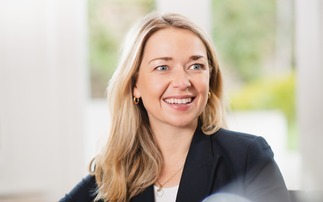A TV show on the impact of illness on families will do much to aid IP's progress, writes Richard Walsh.
The IP Task Force's Family Support Initiative is one of the best ideas to come out of the industry for many years. Particular praise should go to Karin Lloyd, who came up with the idea in the first place. The concept is simple (as all the best ones are).
In essence, it will be a TV programme, supported by other social media, which will show the impact on real people who become too ill to work and support their families, and how this could have been alleviated if they had bought an IP policy.
The families featured will not have bought an IP policy.
Instead, the sponsoring arrangements will give them cash and rehabilitation support for a year as if they had. It has an element of ‘National Lottery winner', and a hard edge in terms of the impact on real families with illness.
From an industry perspective, the programme will show the value of IP protection from a financial perspective, and showcase the additional support that can be provided to help people get back to work.
But it is not just a piece of standard PR. Currently, charities are facing increasing pressure to award emergency grants to hard-up families struggling with the financial impact of illness and the benefit cuts that are and will be made. It is therefore particularly welcome that the initiative takes place in partnership with them. In addition, there are implications for many other stakeholders.
I suspect most of the general public will never have heard of IP and how it could benefit them. Then there is the political angle. There seems to be a growing belief across the political spectrum that those who contribute more should get more out and that this is a good thing. The move to auto-enrolment for pensions is a clear indication of this.
The challenge for the politicians (and governments) is: do they need to make any changes to the benefits system to encourage more people to purchase IP? For me, treating it as earned income, rather than deducting it on a £-for-£ basis would be a good start.
Next we have the money advice service and the plethora of other advice points including IFAs. Hopefully, the initiative will result in a much more proactive approach to marketing IP. Finally, we have the regulators. Here, the key thing will be to ensure that the IP products brought to market and sold are good quality and value for money.
Funding for the project will be provided by insurers and reinsurers: up to £20,000 per company, so it is hardly expensive. Some firms are offering their skills in rehabilitation to support the initiative. We do want to see some happy endings when people return to work.
The umbrella charity Disability Rights UK will hopefully take on some of the coordinating work. Individual charities are likely to nominate candidate families to take part in the project, but it will be important not to neglect the element of surprise for those who are picked.
That said, this isn't just a lottery. It is a way of highlighting a whole range of issues for families in this situation, and they will need to be willing to share their ongoing experience with the wider world through a range of media including television, digital media, press and radio.
Richard Walsh is a director and fellow of SAMI Consulting, www.samiconsulting.co.uk










